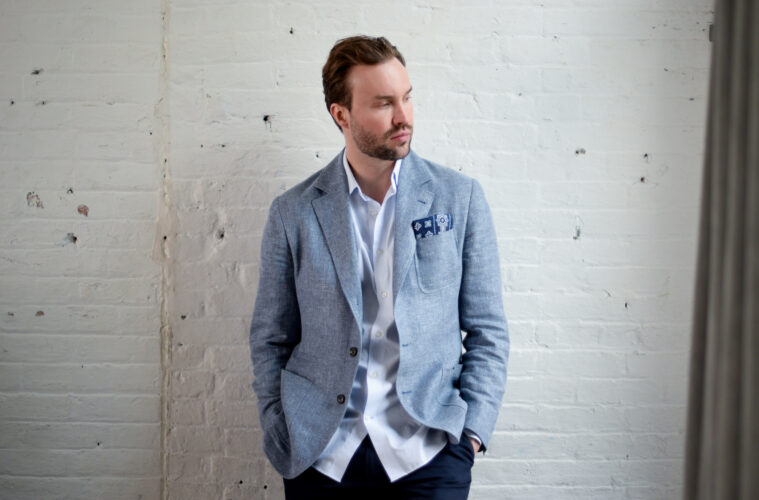As the scorching summer heat arrives, it brings along a range of skin-related challenges. To help you navigate this season with confidence and maintain healthy, glowing skin, we have sought the expertise of renowned surgeon Dr. Sergei Kalsow. With his extensive knowledge and experience in the field of dermatology and plastic surgery, Dr. Kalsow has become a trusted authority on skincare.
Whether you’re planning a beach vacation or simply want to make the most of the sunny days, Dr. Kalsow’s expert advice will help you maintain healthy skin throughout the season. Get ready to dive into a wealth of knowledge that will transform your summer skincare routine and unlock the secrets to a luminous complexion.
Stay tuned for our insightful tips on how to keep your skin fresh, protected, and glowing all summer long. Your skin will thank you!
- Can you tell us about your background and education in cosmetic surgery and skin care, and how you fall into this line of work?
I took the long way to do cosmetic surgery. I spent 8 years in a hospital, doing all other specialty surgeries, such as transplant, vascular, trauma. Then I did a fellowship to become a board certified plastic and reconstructive surgeon. I further narrowed my field to mostly cosmetic procedures. The progression was from general to specific.
What is your summer skin care advice?
stay out of the sun as much as you can. It ads up over the years, so in the 5th decade you can see the difference in the people who were out in the sun a lot, vs those that were not. But if you go in the sun, use sunblock, stay hydrated, and moisturize the skin.
What do you recommend for people who undergo a procedure as the best care for their skin during the summer months?
If you get a procedure in summer months, make sure you do not go in the water and in the sun too soon. You have to wait a few weeks to go in the ocean, so the water does not enter through the healing incisions. And the scars are very photo sensitive the first few months after surgery, so keep them covered from the sun. Also need to keep the incisions clean and dry, which can be hard in the hot, humid summer months. But that said, there is no major reason not to have surgery in the summer, especially if you have time off.
- How do you balance the art and science to achieve optimal results for your patients?
the science is a must. It has to be optimized 100 percent, so that the body works just as well after the surgery, or better then before. The art, the cosmetic part comes next, and you try to give the best outcome without affecting the way the body works, the biology and the science. So if I do a tummy tuck, the more skin I cut out, the flatter the abdomen and better it looks. But I know I cannot cut out all the skin that I theoretically can, because that would affect healing, and scarring…I am limited by the biology of the body.
- How do you ensure that patients are fully informed and prepared for their procedures?
You have to talk to the patients personally and explain the most pertinent information they need to know. There are pages and pages of consents that they sign, but no one really reads the consents, so you have to explain. Its kind of like when you download an app and it gives you pages of some information, you know you will use the app, no one reads that information, they just scross to the bottom and sign. But then, the app developer would appear and say, you signed all this, but here are a few points you need to know. its helpfull.
- Can you walk us through a typical day in your practice, and the types of procedures you perform?
I start surgeries at 8am, and I finish around 5. I do 3-4 surgeries a day. It is all based on the schedule. When I finish one procedure, I have a short break, and thr next patient is ready to go. I perform about 15 surgeries per week, and I have been doing that for the past 5 years. I do body work, tummy tucks, lipo, bbls, breast work, and facial surgery. For each procedure I do, I am up to date on the latest techniques, although I do not necessarily do the latest techniques because sometimes no one is sure how they work yet. I do what is proven and safe.
- How do you approach patient care and follow-up after a cosmetic surgery procedure?
Patients can come and see me as many times as they want after their procedure. My nurses can answer their questions on the phone, and if there is something they cannot answer, the patients come and see me.
- How do you address and manage any complications that may arise during or after a cosmetic surgery procedure?
All surgeons have complications, and so do I. The important thing about complications is to treat them in an optimal manner. Most complications if they are treated the proper way, will not affect the outcome of the surgery. For example, if someone had a tummy tuck, and two weeks later their stomach begins to swell, hurt, and turn red, it is most likely a seroma, a collection of fluid. So you have to recognize what it is, and all you have to do is drain it with a needle and it goes away. Alternatively, since it swells and it hurts, someone might think its an infection and prescribe antibiotics. Then the patient will be walking around with pain, thinking its an infection, instead of just draining it.
- How do you stay up-to-date with the latest techniques and advancements in cosmetic surgery and skin care?
I talk to my colleagues about how they do their procedures. And also read the journal, and the latest books. If i hear about a plastic surgeon somewhere, in the country or out, giving some great results, i look at what they do and try if they do anything differently.
- What advice would you give to someone who is considering a cosmetic surgery procedure for the first time?
A lot of people want to do it, but then when it comes down to it, they realize they do not like it. When you do your surgery rotations in medical school, that is when you will figure out what you like. Before that, it is a guess.
- How do you balance the desire for physical improvements with the importance of self-acceptance and mental well-being for your patients?
I think everyone wants some self improvement. When I do the initial consult, I can tell if the person is realistic, their reason for doing the surgery, the type of surgery they ask for. If someone asks for liposuction and they are very skinny, then they are not a candidate. If someone wants to change their body to get an ex bf back, that is also a bad reason. A good reason is someone who wants to do it for themselves, and has reasonable expectations.
- What do you consider to be the most rewarding aspect of your work?
For me, it is at follow up, when I see happy patients. I also like the process of being in the operating room, and just spending the whole day there.

